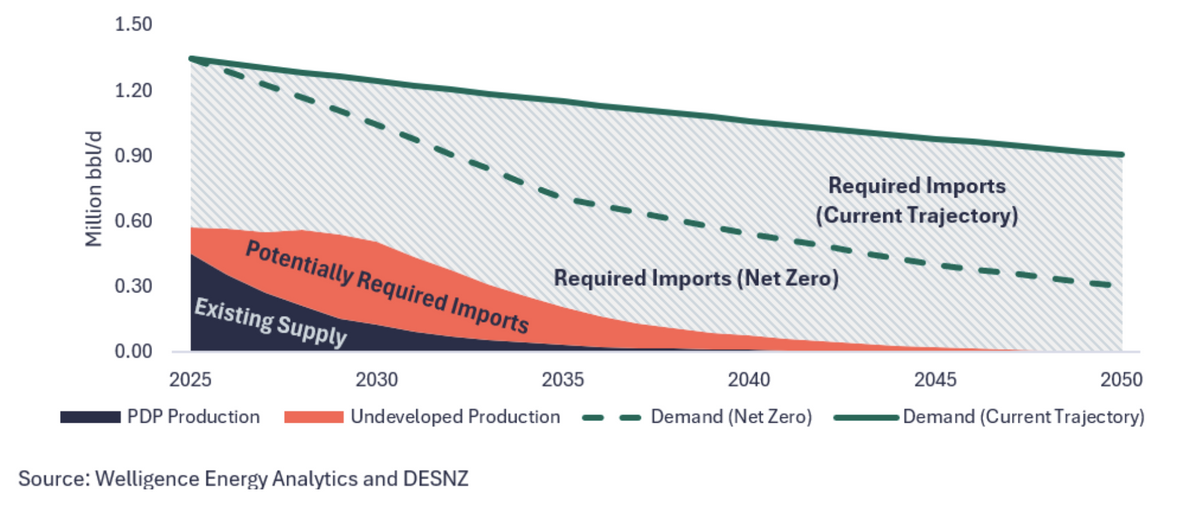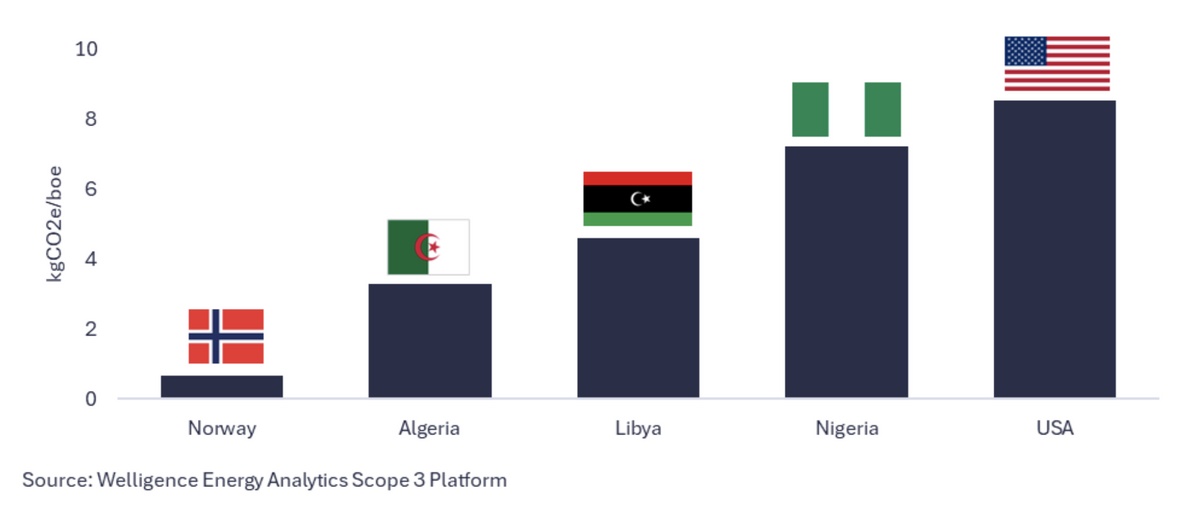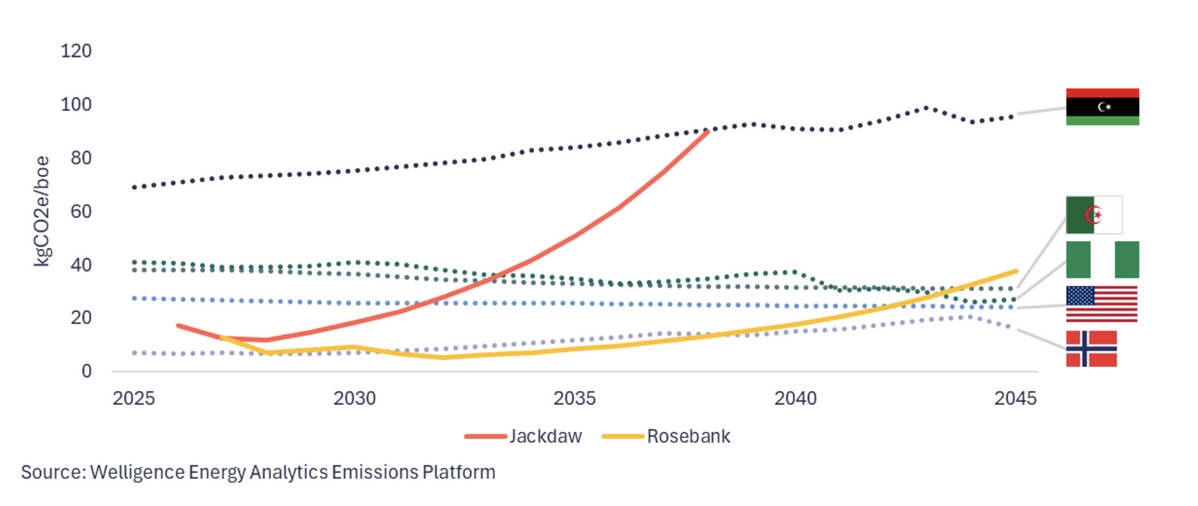Markets
Exploration
Cancelling Jackdaw and Rosebank will Increase UK Emissions
By Fernando Tamayo, Emissions team lead, Welligence Energy Analytics
A Scottish court has ruled that the approvals for the Rosebank and Jackdaw oil and gas fields were unlawful due to inadequate environmental impact assessments, particularly concerning downstream emissions (Consumption - Scope 3). Despite this ruling, development work on these projects will continue while new environmental assessments are submitted. This decision follows a Supreme Court mandate that fossil fuel project approvals must account for all downstream emissions. Shell (Jackdaw) and Equinor (Rosebank) will resubmit their applications once revised environmental guidelines are released in the spring.
Our take
If Rosebank, Jackdaw, and other future developments are cancelled, the UK will increase its reliance on imports and inadvertently contribute to higher global greenhouse gas emissions.
UK Oil Supply vs Demand

Note: Demand (Current Trajectory) represents an oil demand forecast based on historical data from the past 25 years. Demand (Net Zero) represents the Department for Energy Security and Net Zero's (DESNZ) net zero scenario.
The court's ruling was based on Shell’s and Equinor’s failure to consider emissions associated with the combustion of produced hydrocarbons. However, it is important to note that this source of Scope 3 emissions is ultimately driven by hydrocarbon demand. Even under the Department for Energy Security and Net Zero’s ambitious Net Zero Scenario (DESNZ NZC), there is a significant gap between national demand and supply. Jackdaw and Rosebank do not increase demand; instead, they serve as a means for domestic production to meet the UK’s sustained demand (as well as supporting jobs and providing tax revenue).
Crude Transport Emissions Associated with Key Crude Exports to the UK

By limiting oil production to levels below demand, the UK restricts its ability to regulate upstream operational practices and increases the distance oil must travel—both factors significantly impacting emissions. As domestic production in the UK diminishes, the country will increasingly rely on imports. Currently, the main countries that supply crude to the UK are Algeria, Libya, Nigeria, Norway, and the US. All but Norway must ship crude thousands of kilometres, and these voyages are emissions intensive.
For reference, Rosebank’s average emissions intensity for the first 13 years (8.40 kgCO2e/boe) of production would be lower than just the transport emissions associated with crude imports from the US (8.53 kgCO2e/boe). This means that even if the production of crude in the US was carbon neutral, the UK (and the world) would see lower absolute emissions if crude was produced domestically, instead of imported from the US.
Upstream (Scope 1 + 2) and Transport Emissions Intensity - Domestic Production vs Imports

When these factors are considered, the court's decision appears to accomplish the opposite of what it set out to do. Compared to imports from key suppliers to the UK, Rosebank’s upstream and transport emissions would make it the least emissions-intensive source of crude until the late-2030s. Jackdaw would be less emissions intensive than oil supplied by four out of five key countries exporting to the UK. Moreover, Jackdaw's positive environmental impact is not fully captured above. Given that the asset is being developed via the existing Shearwater infrastructure, it will be responsible for zero incremental emissions. Furthermore, the Jackdaw tieback will decrease in the emissions intensity of the Shearwater Hub by nearly 70%.

About the Author
Fernando Tamayo currently leads the Emissions team at Welligence Energy Analytics, based in Houston. He has extensive knowledge in the upstream oil and gas sector, with a focus on emissions and decarbonization.

